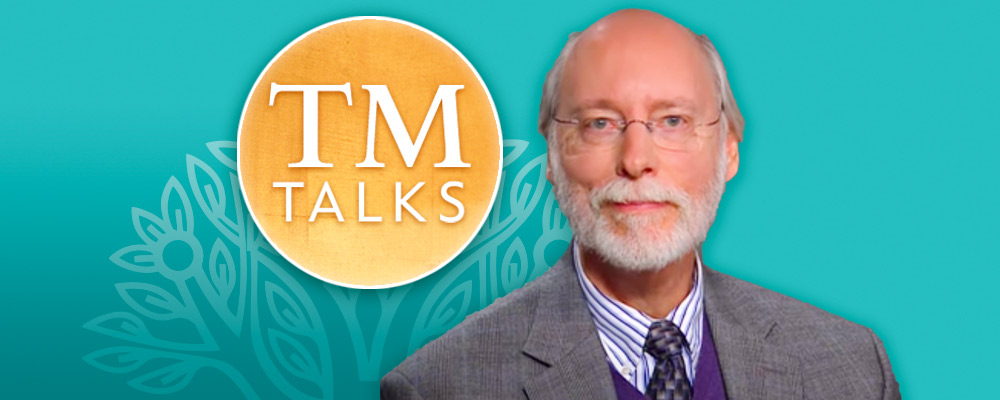William Stixrud, Ph.D., is a clinical neuropsychologist and founder of The Stixrud Group, in Silver Spring, Maryland. He is an Assistant Professor of Psychiatry and Pediatrics at the George Washington University School of Medicine.
Dr. Stixrud is a frequent lecturer and the author of scientific articles and book chapters on topics related to adolescent brain development, stress, and meditation. His work has been featured in publications such as The New York Times, The Washington Post, The Wall Street Journal, Time, and Scientific American. Most recently, he was co-author, with Ned Johnson, of the best-selling book, The Self-Driven Child: The Science and Sense of Giving Your Kids More Control Over Their Lives.
In the first interview, Dr. Stixrud discusses how the current pandemic is causing extreme stress and anxiety for many children, teens, and their parents. He briefly explains the science of stress, resilience, and the importance of a healthy sense of control for optimal development. He also discusses the ways in which the Transcendental Meditation® (TM®) technique can help kids and adults develop brains that are capable of adapting to the dramatic changes we now face.
Watch the first interview with Dr. William Stixrud (51:27)
In the second interview, Dr. Stixrud discusses teenage stress, depression, and anxiety, and the importance of developing an increasing sense of control. He explains that people often resort to substance abuse as a coping mechanism, and offers healthy alternatives to stress management. Dr. Stixrud also highlights the importance of intrinsic motivation for gaining lifelong happiness, and responds to stimulating questions from viewers.
Watch the second interview with Dr. William Stixrud (51:33)
Mario Orsatti, Executive Director of the Center for Health and Wellness, a division of the David Lynch Foundation, interviewed Dr. Stixrud on May 24 and May 31, 2020.
Dr. Stixrud discusses the ways in which the Transcendental Meditation technique can help kids and adults develop brains that are capable of adapting to the dramatic changes we now face.
About TM Talks
TM Talks is a weekly series of LIVE webinars for meditators, on personal development and the growth of higher states of consciousness, every Sunday at 5:00 p.m. Eastern. Connection details below.
If you can’t watch the livestream, visit TM Talks for videos of all broadcasts.
For a schedule of all upcoming online events, including TM Talks, visit TMEvents.org ►
How to Connect
For best results and video, download the Zoom app to your smartphone, tablet, or computer, then click on this link: https://zoom.us/j/177174913. (You will be prompted to install Zoom if it isn’t already on your device.) To join the meeting, enter your email address and name at the prompt.
If you prefer to call in for audio only, dial 929-205-6099 or 253-215-8782, then enter the Meeting ID 177-174-913#.


Comments
You May Also Like
Science & Research
7 Ways to Help Your Kids Be Happy and Successful—Now and for Life | 3:31
A revolutionary approach to raising resilient, purpose-driven kids, by neuropsychologist William Stixrud and test-prep expert Ned Johnson. Think of yourself as your child’s consultant, not her boss. Help your kid problem solve, rather than trying to fix it for him. Encourage “radical downtime” with TM and sleep. Be a “nonanxious presence.”
Education
How Teens Can Sculpt a Happier, More Resilient Brain for Themselves | 28:36
More real-world advice to help your kids be their best selves, from neuropsychologist William Stixrud and test-prep expert Ned Johnson, authors of The Self-Driven Child: The Science and Sense of Giving Your Kids More Control over Their Lives.
Science & Research
Dr. William Stixrud on How to Tame, Protect, and Nurture the Adolescent Brain | 20:45
Did you know cognitive functions aren’t mature until 25, and emotional regulation isn’t fully functional until 32? With humor and science, a neuropsychologist unlocks the secrets of the teen brain—and what TM can do to help.
Better Health
Dr. William Stixrud: What TM Can Do for the Young Brain
"Because it is still developing, the adolescent brain is more vulnerable to the effects of chemicals, including drugs, alcohol, and stress hormones." —Neuropsychologist William Stixrud, Ph.D.